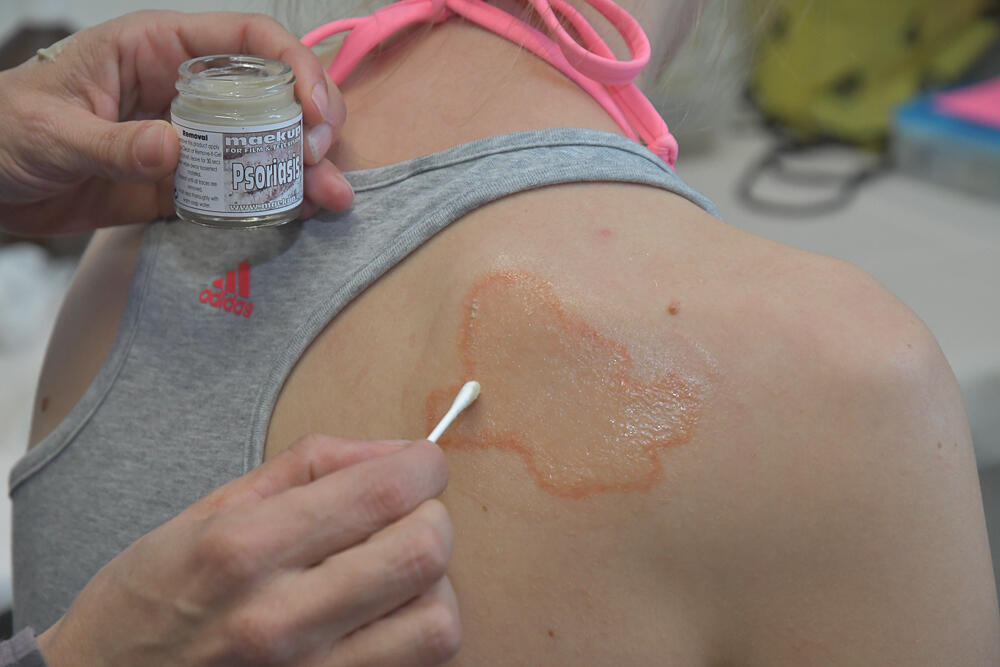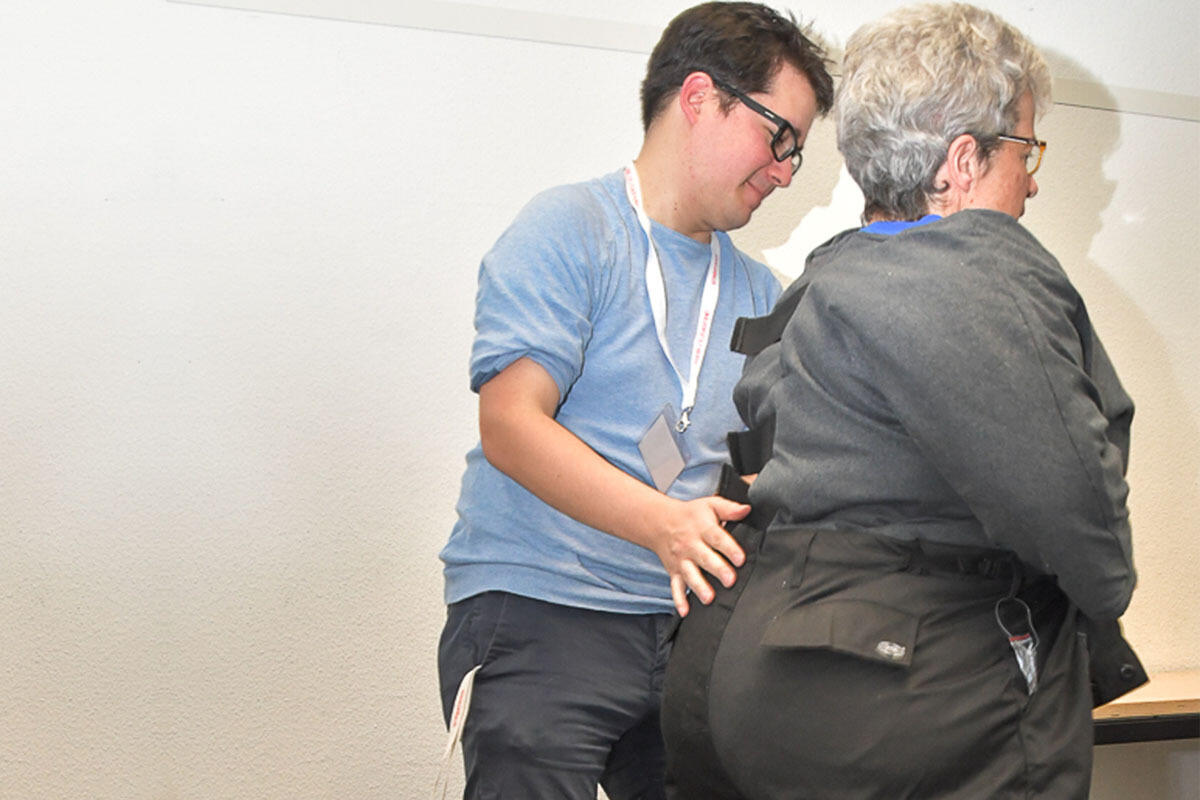So-called standardized patients (SPs) act as patients in role-play situations within the framework of clinical-practical examinations in medicine. The examinees interact with several SPs in succession in a circuit, demonstrating their medical skills and competencies. While they do so, trained, clinically practising examiners evaluate their performance. The clever combination of SPs with simulators, make-up or prostheses in so-called hybrid simulation opens up new possibilities in this area.
Realistic simulation thanks to standardized/simulated patients
To lend greater validity to this examination format, it is necessary that simulated patient roles are played both standardized (the same for all examinees) and in a true-to-life manner. Well-trained SPs are able not only to depict patient histories but also to simulate numerous clinical findings. They are well able to realistically portray restricted mobility, reduced vision, pain or psychological impairments.
Further development of the format
Nevertheless, it is by no means possible to depict everything that is relevant to an examination “theatrically”. For instance, even the most experienced of SPs cannot manage to simulate pathological heart sounds which the examinees may be listening out for (auscultation) or present a skin rash on command merely through acting. So far, the problem of presenting such findings has been resolved through pictures, diagnosis cards or examination models. However, such changes in medium are not only unrealistic, but can also disrupt examinees and SPs in their role and negatively influence their performance. This is where hybrid simulation comes in: SPs are combined with simulators, make-up or prostheses in such a way that it is possible to depict disease patterns that can otherwise not be simulated, and the findings can be obtained directly from the SPs. This helps the examinees and the SP to become immersed in the role play and increases the meaningfulness of the examination.
Deployment of a project group
In the framework of a quality assurance measure, the Federal Office of Public Health has commissioned a project group from the Universities of Bern, Lausanne and Zurich with the task of gathering experiences with hybrid simulations in the examination setting and of making recommendations for a possible use in the Federal Clinical Skills Examination. The project will be completed at the end of 2017.



